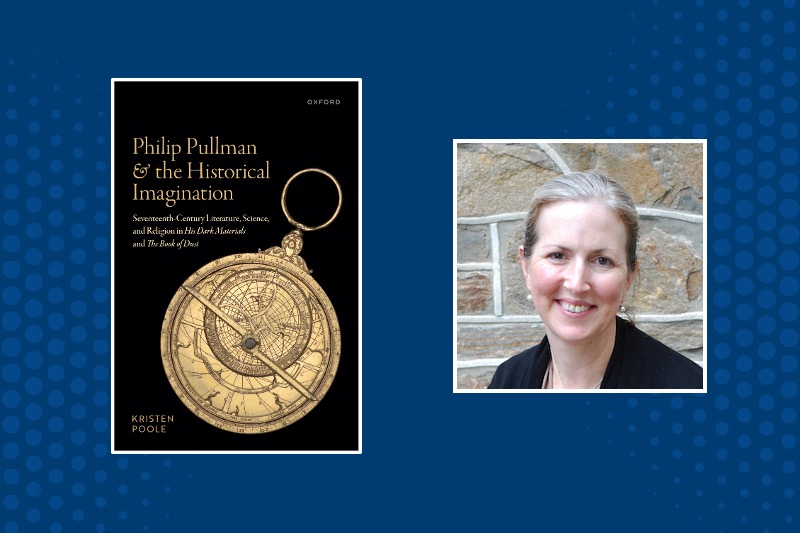
Category: English

Philip Pullman and the Historical Imagination
April 20, 2025 Written by CAS Communication Staff
Philip Pullman and the Historical Imagination (Oxford University Press, April 2025) takes the general reader on a fascinating tour of seventeenth-century thought, exploring how this time period shaped Pullman’s extraordinary trilogies His Dark Materials and The Book of Dust.
Kristen Poole, Ned B. Allen Professor in the Department of English takes readers into the mysteries of Renaissance allegory and hieroglyphics, tracing how the alethiometer and Lyra’s way of reading the device emerged from these traditions.
Part Two enters the exciting and revolutionary world of 17th-century science. We see how the amber spyglass imitates Galileo’s telescope, how early modern fantasies of space travel led to ideas of multiple worlds, how alchemy entered Lyra’s later adventures in Oxford and Prague, and how the concept of Dust shares in the physics and philosophies of early scientists like Margaret Cavendish.
Part Three invites readers into the thrilling epic poem Paradise Lost—John Milton’s dramatic account of the creation of the world following a violent war in Heaven—that was Pullman’s inspiration for His Dark Materials. Pullman’s vibrant re-telling of this core story brings us rebel angels, recasts Satan as a brooding Lord Asriel and presents Lyra as the new Eve.
Philip Pullman and the Historical Imagination is crafted in an engaging and accessible style aimed at popular readers and fans of Pullman’s work. It enlivens a historical period that has long attracted Pullman himself, bringing to life intriguing figures and the richly complex ideas of the time. This book is an exploration of history through the worlds and characters Pullman has invented. Ultimately, it not only reveals how 17th-century history helps readers better understand Pullman’s novels, but shows how reading history through the lens of Pullman’s imagination offers new ways of thinking about the past.
